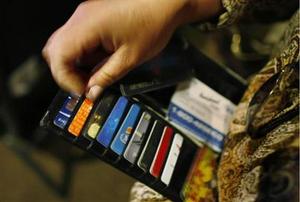|
Credit card users must fight for their rights |
 |
 |
 |
|
Written by 3K Admin
|
|
Wednesday, 11 November 2009 09:31 |
|
 Wednesday November 11, 2009 Plain Speaking - By Yap Leng Kuen CONSUMERS have to be more proactive and exercise their rights when it comes to merchant surcharges on credit cards. No longer should they passively agree to the surcharge just because they have become used to that particular merchant or are simply too disinterested to shop elsewhere. Banks are firm when it comes to merchant surcharge. RHB Bank head of retail banking Renzo Viegas told consumers not to “accept any imposition of surcharge, report such incidents to the bank or go to other merchants that do not impose surcharge.’’ |
|
Last Updated on Wednesday, 11 November 2009 10:16 |
|
Read more...
|
|
|
Chemicals in Our Food, and Bodies |
 |
 |
 |
|
Written by 3K Admin
|
|
Tuesday, 10 November 2009 17:26 |
|
By NICHOLAS D. KRISTOF
Published: November 7, 2009
Your body is probably home to a chemical called bisphenol A, or BPA. It’s a synthetic estrogen that United States factories now use in everything from plastics to epoxies — to the tune of six pounds per American per year. That’s a lot of estrogen. More than 92 % of Americans have BPA in their urine, and scientists have linked it — though not conclusively — to everything from breast cancer to obesity, from attention deficit disorder to genital abnormalities in boys and girls alike. Now it turns out it’s in our food. |
|
Read more...
|
|
Is There any Hope for Agreement at Copenhagen? |
 |
 |
 |
|
Written by 3K Admin
|
|
Monday, 09 November 2009 15:41 |
|
 By BRYAN WALSH If you want to give a U.N. climate change negotiator indigestion, which isn't terribly hard to do these days, mention three letters: W-T-O. That stands for the World Trade Organization, the global body charged with supervising and liberalizing international commerce — and a whopper of a cautionary tale. Back in November 2001, in Doha, Qatar, the WTO launched what is known as the Doha Development Round of negotiations, an effort to increase global trade by reducing trade barriers. Eight years later, the "round" is still ongoing, the talks riven by deep disagreements — especially over agriculture subsidies in the West — between developed and developing countries. There's no end in sight. (See why India is playing hard to get on climate change.) Now, global climate change negotiations appear headed toward the same aimless end. World governments will convene at the U.N. climate change summit in Copenhagen next month, a self-imposed deadline for producing a successor to the expiring Kyoto Protocol. But as diplomats in Barcelona today concluded the last round of official U.N. talks before the summit, it's becoming clear that any agreement between developed and developing countries on greenhouse gas emissions limits will be next to impossible by December. "I don't think we can get a legally binding agreement by Copenhagen," admitted Yvo de Boer, the head of the United Nations Framework Convention on Climate Change (UNFCCC), on Bloomberg Television. |
|
Last Updated on Wednesday, 11 November 2009 16:00 |
|
Read more...
|
|
|
Why We Look at Some Web Ads and Not Others |
 |
 |
 |
|
Written by 3K Admin
|
|
Tuesday, 10 November 2009 14:17 |
|
 By Barbara Kiviat Sunday, Nov. 08, 2009
Do you think you're more likely to look at an online ad if it contains 1) a picture, 2) an animation or 3) just text? The answer: just text. Surprised? Well, consider the man who was checking his e-mail when he came across a dating-service ad featuring a picture of a bikini-clad woman. He looked at the woman's face and chest once — and then at the surrounding text five times.
The Internet has cracked open a brave new world for folks whose job it is to spend ad dollars. The ability to track where a Web user clicks provides a sort of precision intelligence advertisers could have only dreamed of in decades past. But before a click comes a look, and according to new research, advertisers are often wrong about what attracts our attention. |
|
Last Updated on Wednesday, 11 November 2009 16:01 |
|
Read more...
|
|
Written by 3K Admin
|
|
Friday, 06 November 2009 12:01 |
|
 KUALA LUMPUR, Nov 6 — The government has always been able to count on billionaire Robert Kuok to keep domestic sugar prices steady even in times of great volatility in world markets. But the businessman’s surprise exit last week from the trade that his family has controlled since the 1940s is raising concern that the days of stable sugar prices in the country may be numbered. Sugar is a controlled commodity in Malaysia.
“This is a highly complex business. Only a player like Kuok who is a big player in the world scene can absorb losses and keep prices stable when the international sugar market goes crazy,” said a Singapore-based sugar trader. |
|
Last Updated on Friday, 06 November 2009 12:05 |
|
Read more...
|
|
|
|
|
|
|
Page 36 of 66 |
